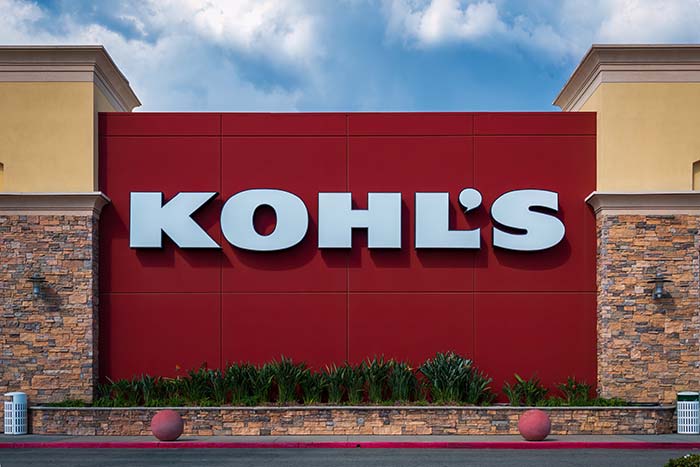Kohl’s (NYSE: KSS) board of directors acted swiftly last week when it was reported that now-former CEO Ashley Buchanan funneled multimillion-dollar deals to his romantic partner.
While the gravy train may have stopped for Buchanan’s girlfriend, Kohl’s investors are hoping to continue getting the company’s solid dividend.
But can interim CEO Michael Bender sustain the big 7.6% yield?
The stock has been falling since 2018, which is why the dividend yield is so high.
Over the past few years, Kohl’s free cash flow has gone up and down almost as much as a Knicks fan’s emotions while watching the NBA playoffs.
In fiscal 2024, which ended in February, free cash flow dropped from $591 million to $182 million. In 2022, it was negative. Free cash flow for the current fiscal year is forecast to rise to $393 million.
In fiscal 2024, Kohl’s paid shareholders $222 million in dividends. That came out to a 122% payout ratio, which is way too high. In other words, it paid shareholders $1.22 for every $1 in free cash flow. That is not sustainable.
However, because free cash flow is forecast to rise to $393 million this year, the payout ratio is projected to drop to a more comfortable 61%, as the total dividend payout is expected to rise only slightly to $238 million.
As for Kohl’s dividend history, it is like former CEO Ashley Buchanan’s judgment.
Not good.
Kohl’s slashed its dividend from $0.50 per share to $0.125 earlier this year. During the pandemic, it eliminated the payout entirely for three quarters. When it brought it back, the dividend was 65% lower than before it was suspended.
So Kohl’s dividend safety rating has a lot of things going against it: The company’s free cash flow fell in the most recent fiscal year, its payout ratio is sky-high, and it is a frequent dividend cutter.
Kohl’s is facing tariffs and a new CEO taking over after a scandal. With all the marks against its record, its dividend cannot be considered safe.
Dividend Safety Rating: F

What stock’s dividend safety would you like me to analyze next? Leave the ticker in the comments section.
You can also take a look to see whether we’ve written about your favorite stock recently. Just click on the word “Search” at the top right part of the Wealthy Retirement homepage, type in the company name, and hit “Enter.”
Also, keep in mind that Safety Net can analyze only individual stocks, not exchange-traded funds, mutual funds, or closed-end funds.


